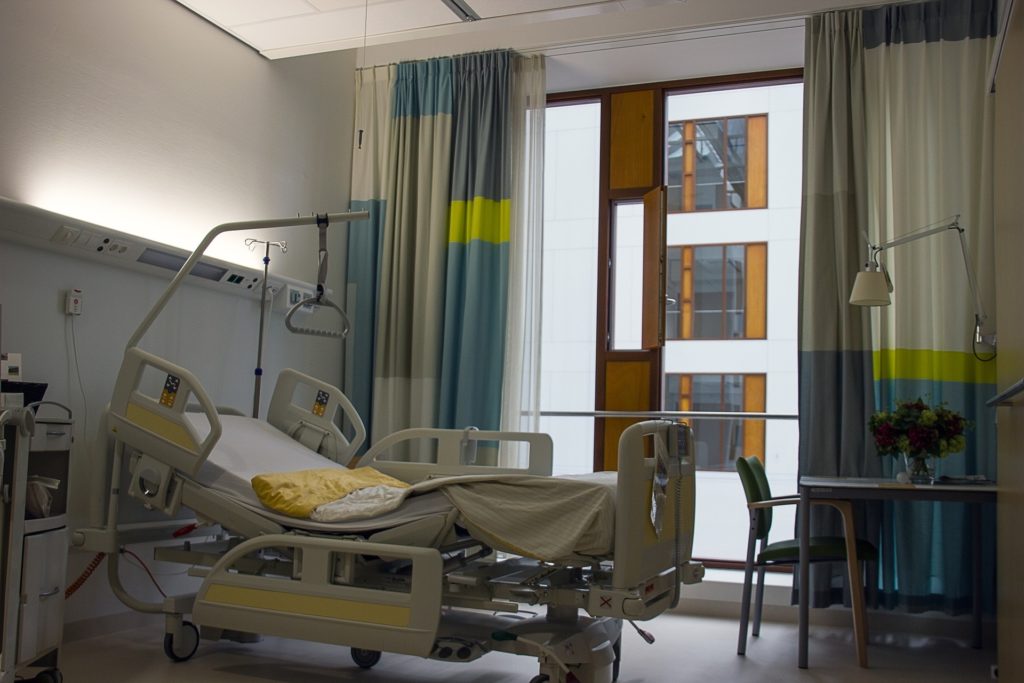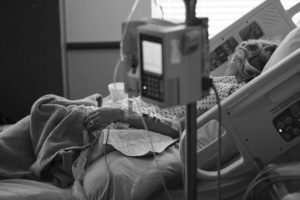- Calls to this hotline are currently being directed to Within Health, Fay or Eating Disorder Solutions
- Representatives are standing by 24/7 to help answer your questions
- All calls are confidential and HIPAA compliant
- There is no obligation or cost to call
- Eating Disorder Hope does not receive any commissions or fees dependent upon which provider you select
- Additional treatment providers are located on our directory or samhsa.gov
Acute Eating Disorder Treatment: When, Why, & How?

Eating disorders are an illness of both the body and mind and both must be addressed in treatment. However, persistent, long-term, or severe eating disorders often result in a heavily damaged body and put the individual in critical risk. Acute Eating Disorder Treatment is needed in these moments, acute hospitalization to focus first on repairing the body and then acute therapy to focus on the mind.
When?
The simplest advice on “when” to look into hospitalization for you or a loved one struggling with an eating disorder is the moment you ask yourself if it is necessary.
Some signs that might signify hospitalization and medical stabilization are needed include:
- Low body weight: especially if it is long-term or the weight-loss is rapid. The Academy of Eating Disorders encourages inpatient treatment for anyone below 75% of their ideal body weight [1].
- Electrolyte Imbalance: Electrolytes are imperative for vital biochemical functions [1]. If they are unbalanced, there can be serious consequences leading to acute inpatient treatment.
- Abnormally Slow Heart Rate: This can be a common and possibly fatal symptom of a severe eating disorder. Eating disorders impact the heart so severely it can actually cause it to shrink [1]. Low heart-rate is absolutely a sign that immediate hospitalization for medical stabilization might be necessary.
- Health Complications: If an individual is experiencing any health complications other than those above, it is time to consider hospitalization.
You may be thinking, “okay, but how the heck do I check my electrolytes or heartbeat?” If you are concerned that you are struggling with an eating disorder and may need hospitalization, go to see your Primary Care doctor or to the hospital and ask that they check these things.
They will likely do so, and the hospital can possibly help to medically stabilize you themselves or help you find a place that can.
Why?
There are many reasons to seek out acute eating disorder treatment, and one of the most important is to begin the process of healing the body. Eating disorders take a disastrous toll on all bodily functions, some of which can be irreparable or fatal if severe enough.
Many people wonder at the need for medical stabilization and hospitalization before entering other forms of eating disorder inpatient treatment. The truth is that treatment has to start somewhere and that somewhere has to be the issues most threatening to the life and well-being of the individual.
Once the person struggling with an eating disorder reaches medical stabilization, other treatment forms and avenues can begin. However, the first priority is to get the individual out of the “danger zone” with their health.
How?
 The “how” is a difficult question, as many find themselves caught between the unfortunate push-and-pull between psychiatric and medical facilities. Medical professionals say “it’s psychological,” psychiatric professionals say, “it’s medical.” The truth is, it is both.
The “how” is a difficult question, as many find themselves caught between the unfortunate push-and-pull between psychiatric and medical facilities. Medical professionals say “it’s psychological,” psychiatric professionals say, “it’s medical.” The truth is, it is both.
A recent study interviewed general medical physicians to learn their experience and treatment methods for patients with an acute eating disorder.
The majority of these doctors labeled patients with eating disorders a “rarity [2].” This explains the lack of understanding that eating disorders can be both medical and psychiatric and that both should be treated.
There are many websites devoted to helping individuals find informed and evidence-based eating disorder treatment and support closest to them such as the National Eating Disorders Association or the website you are on now, Eating Disorder Hope.
Inquire about treatment that involves acute care for severe eating disorders, as not all inpatient eating disorder treatment centers are equipped for disorders of that caliber.
However, if you are critically concerned about yourself or your loved one, it is never a bad idea to see a doctor or go to the hospital. They can support you in determining the severity of the eating disorder on the body and how to access the help needed.
Resources:
[1] Jones, P. (2019). 5 common signs that could indicate the need for inpatient eating disorder care. Walden Behavioral Care, retrieved on 04/20/2019 from https://www.waldeneatingdisorders.com/5-common-signs-that-could-indicate-the-need-for-inpatient-eating-disorder-care/. [2] Davidson, A. R. et al. (2019). Physicians’ perspectives on the treatment of patients with eating disorders in the acute setting. Journal of Eating Disorders, 7:1. About the Author:
About the Author:
Margot Rittenhouse, MS, PLPC, NCC is a therapist who is passionate about providing mental health support to all in need and has worked with clients with substance abuse issues, eating disorders, domestic violence victims, and offenders, and severely mentally ill youth.
As a freelance writer for Eating Disorder Hope and Addiction Hope and a mentor with MentorConnect, Margot is a passionate eating disorder advocate, committed to de-stigmatizing these illnesses while showing support for those struggling through mentoring, writing, and volunteering. Margot has a Master’s of Science in Clinical Mental Health Counseling from Johns Hopkins University.
The opinions and views of our guest contributors are shared to provide a broad perspective on eating disorders. These are not necessarily the views of Eating Disorder Hope, but an effort to offer a discussion of various issues by different concerned individuals.
We at Eating Disorder Hope understand that eating disorders result from a combination of environmental and genetic factors. If you or a loved one are suffering from an eating disorder, please know that there is hope for you, and seek immediate professional help.
Published on April 30, 2019.
Reviewed & Approved on April 30, 2019, by Jacquelyn Ekern MS, LPC
Published on EatingDisorderHope.com

The EatingDisorderHope.com editorial team comprises experienced writers, editors, and medical reviewers specializing in eating disorders, treatment, and mental and behavioral health.

